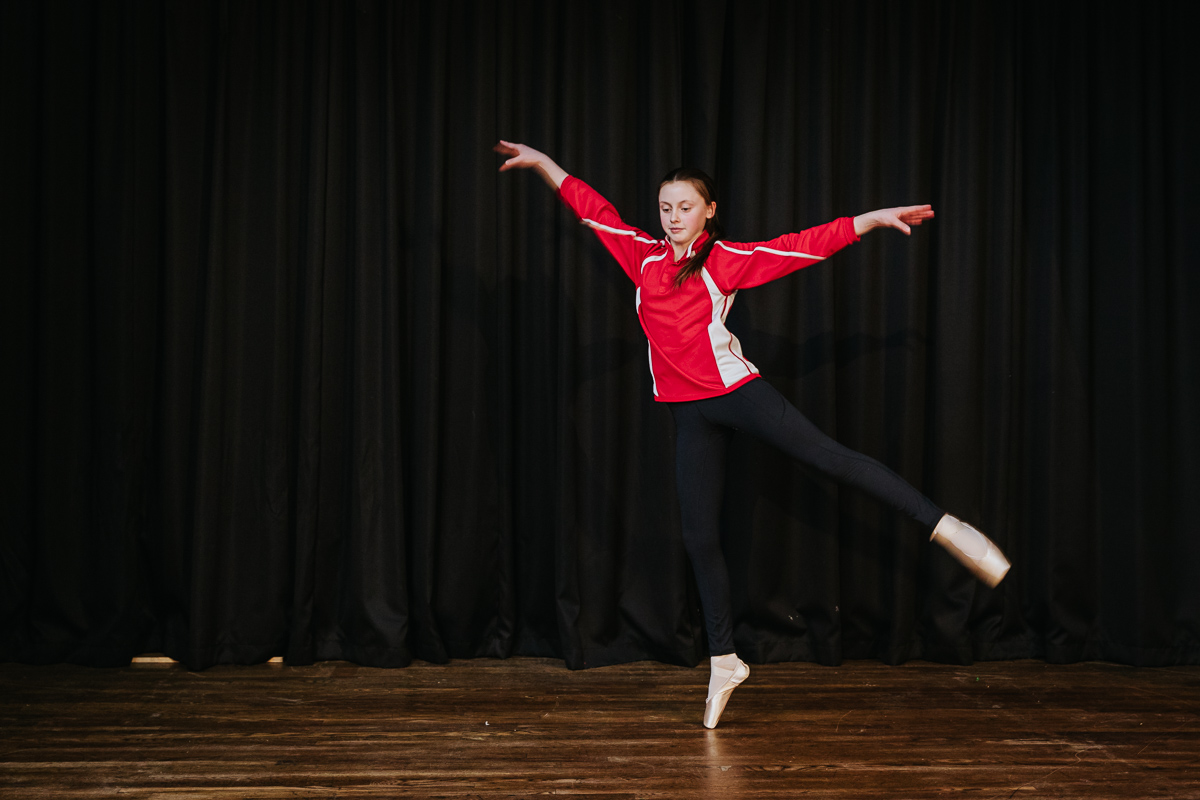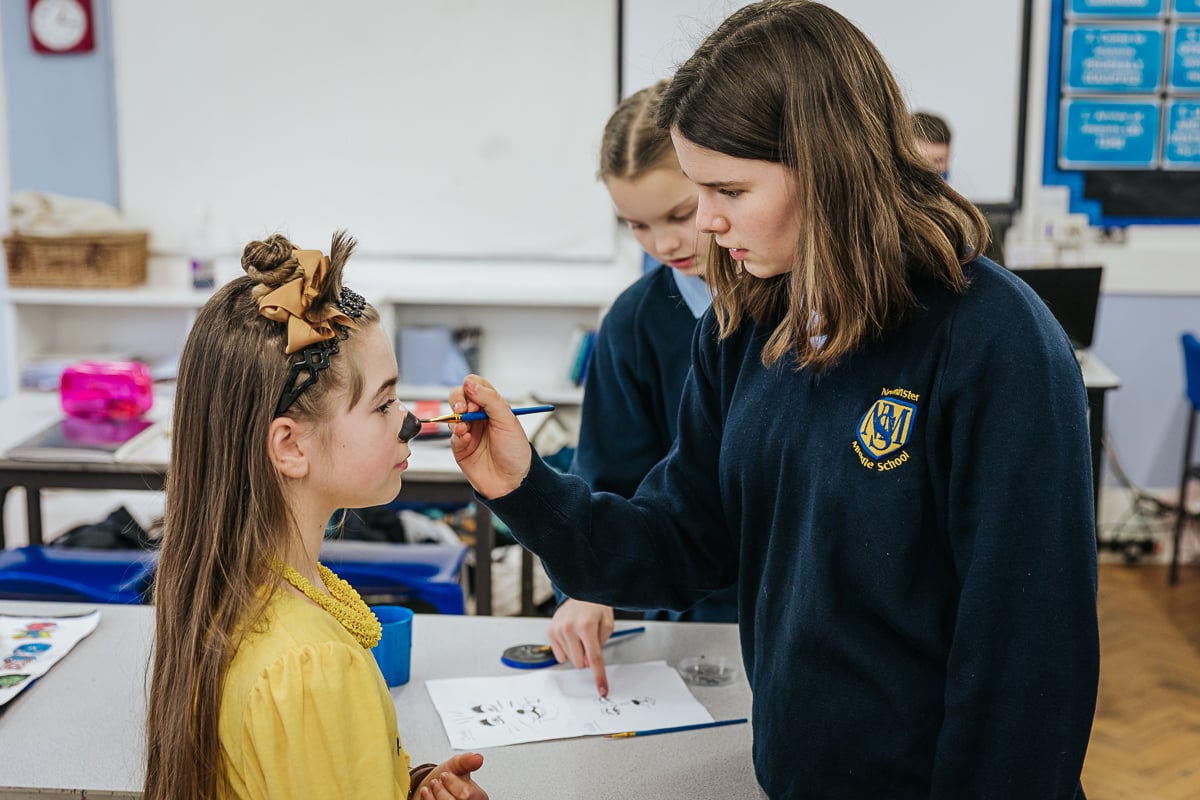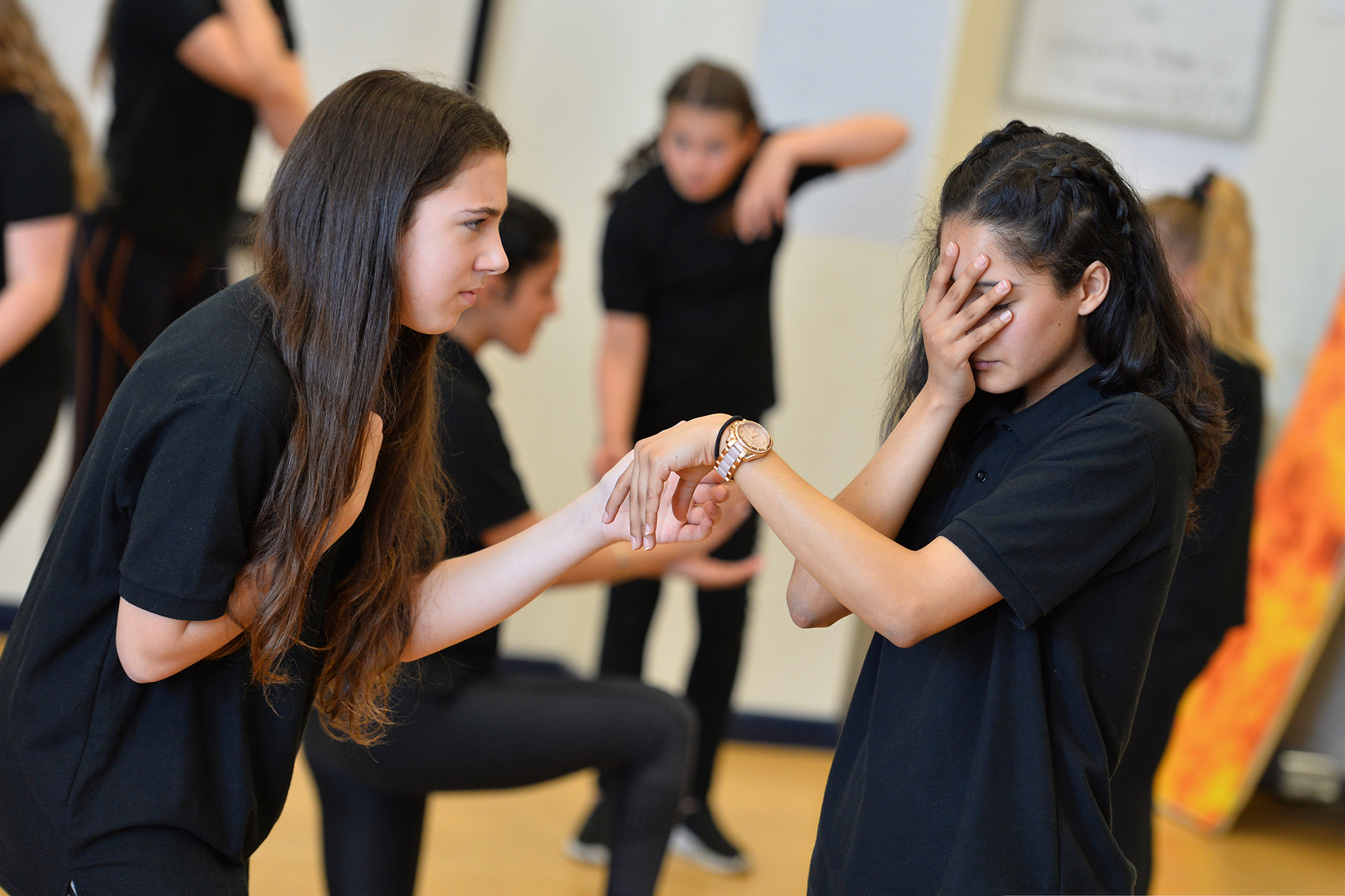
Exploring Drama Tasks: Expressive Reading
BY: Nicola King
06 December 2023
Expressive Reading is a new task in our Speech & Drama specification (2023) and so those approaching this task for the first time may be wondering what is involved and how they should prepare. In this blog we will explore what you should expect…
The aim of the Expressive Reading task is to encourage and improve the candidate’s confidence when approaching new texts, decoding vocabulary, responding imaginatively and then conveying the meaning to an audience expressively. Through engaging with this task candidates will build skills that are relevant in the rehearsal room, education, and employment.
At Grades 2-6 candidates will give a prepared reading of a passage of prose or, from Grade 5, a poem, selecting this from the approved Expressive Reading material list found on our website. The piece is not memorised, candidates will work ‘book-in-hand’, but they should be familiar enough with the piece to look up from the book and engage the audience, and to have a sense of the tone and style of the material. For example, for prose passages, the examiner will be listening for the candidate’s response to the literary style and language as well as the content and meaning, and for poetry, the candidate’s response to the metre, poetic form, imagery, and language.
The examiner will be looking for a sense of spontaneity and so the candidate should not have prepared a performance that would prevent them from exploring material in the moment. As with all performance tasks, there should be a relaxed physicality and body language, clarity of diction, vocal variety, and a rapport with the audience.
The focus of the task allows candidates to use their imagination as a storyteller to bring someone else’s story off the page in a creative way, having had time and space to consider different ways to approach it.
At Grades 7 & 8 the task becomes ‘Text Analysis and Expressive Reading’. For this the candidate gives a prepared talk on their approaches to an expressive reading of a set passage of prose, a poem or, at Grade 8, a monologue, with a demonstration of a few short extracts from the text to illustrate their points. So, for example, if the candidate were analysing a poem, they might talk about how the rhythm of the poem would influence how they perform it, and then they would read out loud a line or two from the poem to illustrate their point. Or if they were analysing a piece of prose that has dialogue from more than one character, they might talk about how they would approach this, in order to make sure each character sounded unique, and then they would perform a short extract demonstrating their approach.
The demonstration part of this task mirrors the real-life experience of castings, rehearsals, and interviews, encouraging the candidate to make creative decisions, whereas the prepared talk requires them to think about how they have used the skills they have been learning in performance and explain their choices.
At Grade 7 the candidate should focus on bringing the text to life for an audience and, at Grade 8, the candidate should also be challenging themselves to make imaginative choices. The talk should be delivered in a relaxed, informal manner.
The introduction of an approved Expressive Reading material list for this task will, we hope, provide practical support with teaching and planning. For example, during lesson time you can also use other pieces from the expressive reading material to practice with, ensuring that candidates are practising with pieces of the right level, and building the right skills for the grade. The list also will allow for better standardisation across the grades.
Most excitingly the Expressive Reading material contains a range of pieces giving opportunity to introduce candidates to a diverse range of writing from across the globe. We hope there will be something to interest every candidate.
For more support with Expressive Reading watch this excellent video where you can hear advice from our Lead Senior Examiner Joanna Harte about approaching this task. For guidance on the wider Speech & Drama syllabus, take a look at our resource page.




Comments & Replies